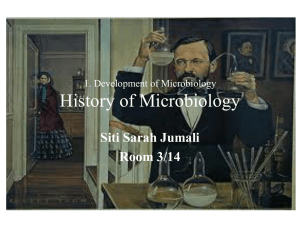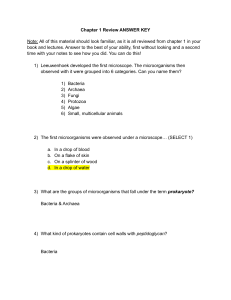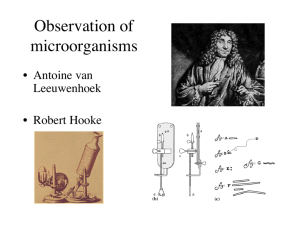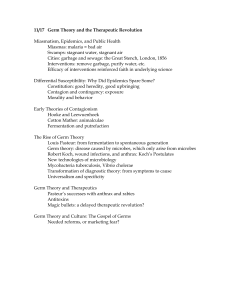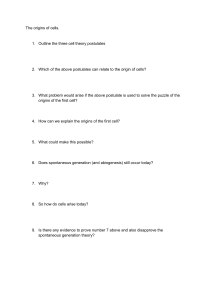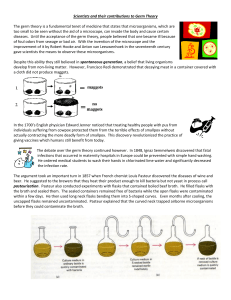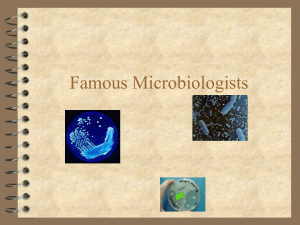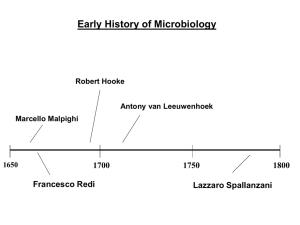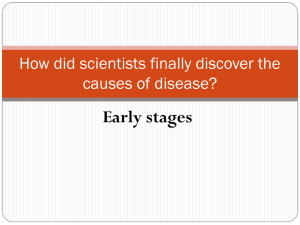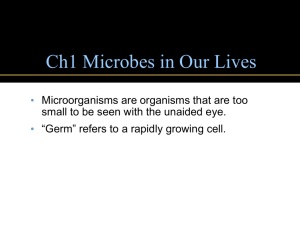Terms you should know: spontaneous generation germ theory of
advertisement
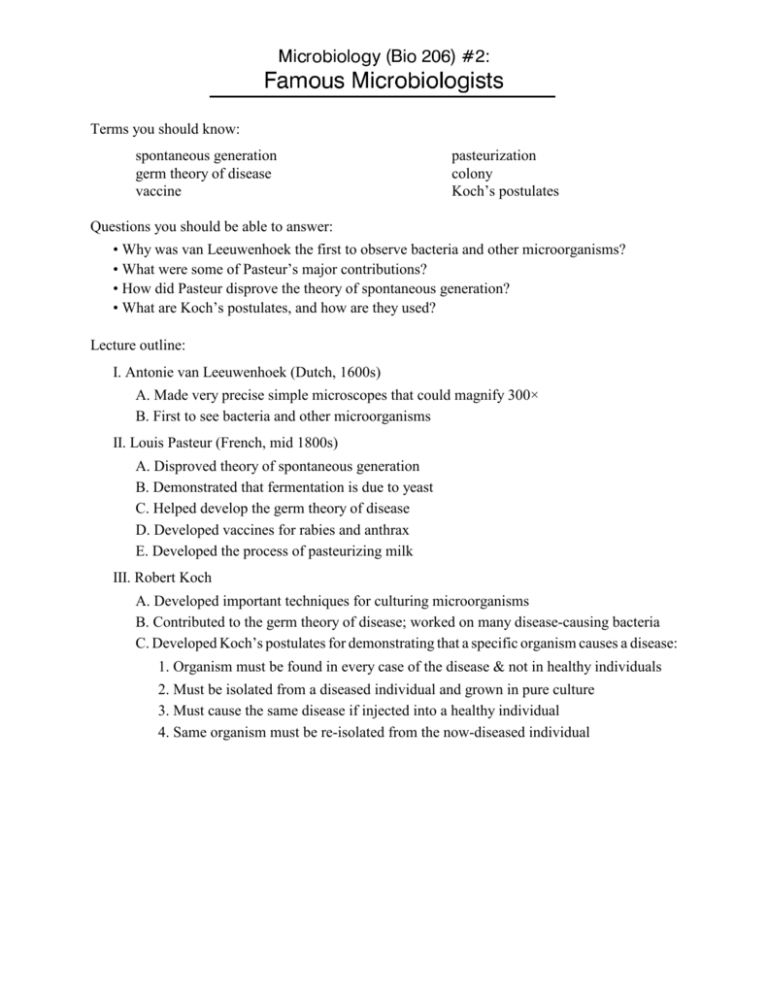
Terms you should know: spontaneous generation germ theory of disease vaccine pasteurization colony Koch’s postulates Questions you should be able to answer: • Why was van Leeuwenhoek the first to observe bacteria and other microorganisms? • What were some of Pasteur’s major contributions? • How did Pasteur disprove the theory of spontaneous generation? • What are Koch’s postulates, and how are they used? Lecture outline: I. Antonie van Leeuwenhoek (Dutch, 1600s) A. Made very precise simple microscopes that could magnify 300× B. First to see bacteria and other microorganisms II. Louis Pasteur (French, mid 1800s) A. Disproved theory of spontaneous generation B. Demonstrated that fermentation is due to yeast C. Helped develop the germ theory of disease D. Developed vaccines for rabies and anthrax E. Developed the process of pasteurizing milk III. Robert Koch A. Developed important techniques for culturing microorganisms B. Contributed to the germ theory of disease; worked on many disease-causing bacteria C. Developed Koch’s postulates for demonstrating that a specific organism causes a disease: 1. Organism must be found in every case of the disease & not in healthy individuals 2. Must be isolated from a diseased individual and grown in pure culture 3. Must cause the same disease if injected into a healthy individual 4. Same organism must be re-isolated from the now-diseased individual
